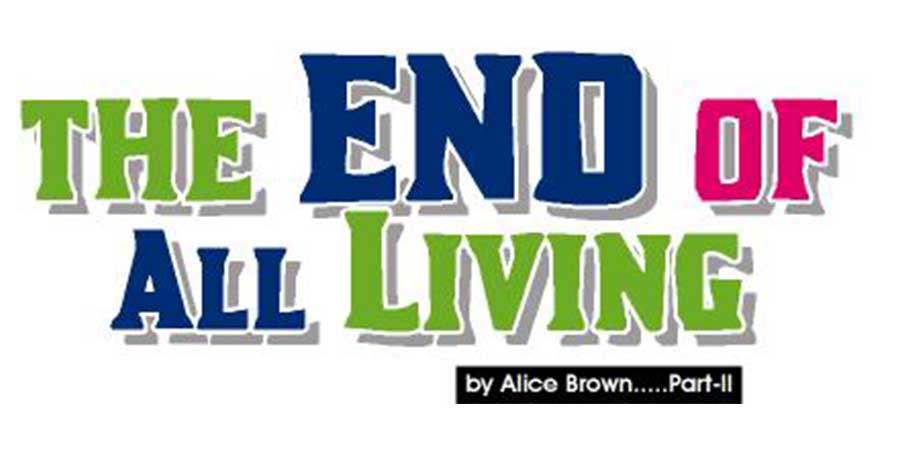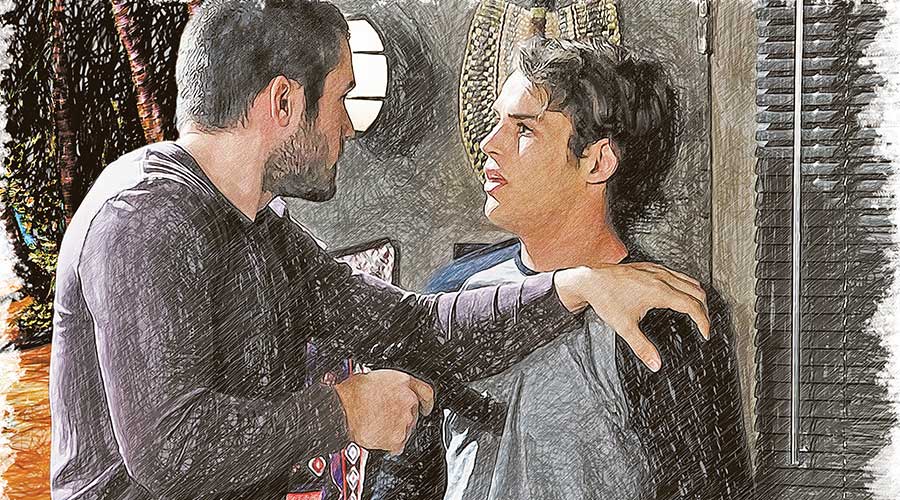THE ORCHARD ON FIRE
- 20 Apr - 26 Apr, 2024

I do not believe he ever quite forgets; there are moments, now and then, at dusk or midnight, all his for pouring over those dulled pages of the past. After we had elected to abide by our old home, we voted an enlargement of its bounds; and thereby hang a tale of outlawed revenge. Long years ago "old Abe Eaton" quarrelled with his twin brother, and vowed, as the last fiat of an eternal divorce, "I won't be buried in the same yard with ye!"
The brother died first; and because he lay within a little knoll beside the fence, Abe willfully set a public seal on that iron oath by purchasing a strip of land outside, wherein he should himself be buried. Thus, they would rest in a hollow correspondence, the fence between. It all fell out as he ordained, for we in Tiverton are cheerfully willing to give the dead their way. Lax enough is the helpless hand in the fictitious stiffness of its grasp; and we are not the people to deny it holding, by courtesy at least. Soon enough does the sceptre of mortality crumble and fall. So Abe was buried according to his wish.
But when necessity commanded us to add unto ourselves another acre, we took in his grave with it, and the fence, falling into decay, was never renewed. There he lies, in affectionate decorum, beside the brother he hated; and thus, does the greater good wipe out the individual wrong. So now, as in ancient times, we toil steeply up here, with the dead upon his bier; for not often in Tiverton do we depend on that uncouth monstrosity, the hearse. It is not that we do not own one, – a rigid box of that name has belonged to us now for many a year; and when Sudleigh came out with a new one, plumes, trappings, and all, and we broached the idea of emulating her.
But the project fell through after Brad Freeman's contented remark that he guessed the old one would last us out. He "never heard no complaint from anybody’t ever rode in it." That placed our last journey on a homely, humorous basis, and we smiled, and reflected that we preferred going up the hill borne by friendly hands, with the light of heaven falling on our coffin-lids. The antiquary would set much store by our headstones, did he ever find them out. Certain of them are very ancient, according to our ideas; for they came over from England, and are now fallen into the grayness of age.

They are woven all over with lichens, and the blackberry binds them fast. Well, too, for them! They need the grace of some such veiling; for most of them are alive, even to this day, with warning skulls, and awful cherubs compounded of bleak, bald faces and sparsely feathered wings. One discovery, made there on a summer day, has not, I fancy, been duplicated in another New England town. On six of the larger tombstones are carved, below the grass level, a row of tiny imps, grinning faces and humanised animals. Whose was the hand that wrought?
The Tivertonians know nothing about it. They say there was a certain old Veasey who, some eighty odd years ago, used to steal into the graveyard with his tools, and there, for love, scrape the mosses from the stones and chip the letters clear. He liked to draw, "creatures" especially, and would trace them for children on their slates. He lived alone in a little house long since fallen, and he would eat no meat. That is all they know of him. I can guess but one thing more: that when no looker-on was by, he pushed away the grass, and wrote his little jokes, safe in the kindly tolerance of the dead. This was the identical soul who should, in good old days, have been carving gargoyles and misereres; here his only field was the obscurity of Tiverton churchyard, his only monument these grotesqueries so cunningly concealed.
We have epitaphs, too, – all our own as yet, for the world have not discovered them. One couple lies in well-to-do respectability under a tiny monument not much taller than the conventional gravestone, but shaped on a pretentious model. "We'd rather have it nice," said the builders, "even if there ain't much of it." These were Eliza Marden and Peleg her husband, who worked from sun to sun, with scant reward save that of pride in their own fore-handedness. I can imagine them as they drove to church in the open wagon, a couple portentously large and prosperous: their one child, Hannah, sitting between them, and glancing about her, in a flickering, intermittent way, at the pleasant holiday world.
Hannah was no worker; she liked a long afternoon in the sun, her thin little hands busied about nothing weightier than crochet; and her mother regarded her with a horrified patience, as one who might sometime be trusted to sow all her wild oats of idleness. The well-mated pair died within the same year, and it was Hannah who composed their epitaph, with an artistic accuracy, but a defective sense of rhyme: – "Here lies Eliza She was a striver Here lies Peleg He was a select Man" We townsfolk found something haunting and bewildering in the lines; they drew, and yet they baffled us, with their suggested echoes luring only to betray. Hannah never wrote anything else, but we always cherished the belief that she could do "'most anything" with words and their possibilities. Still, we accepted her one crowning achievement, and never urged her to further proof.
In Tiverton we never look genius in the mouth. Nor did Hannah herself propose developing her gift. Relieved from the spur of those two unquiet spirits who had begotten her, she settled down to sit all day in the sun, learning new patterns of crochet; and having cheerfully let her farm run down, she died at last in a placid poverty. Then there was Desire Baker, who belonged to the era of colonial hardship, and who, through a redundant punctuation, is relegated to a day still more remote.
to be continued...
COMMENTS